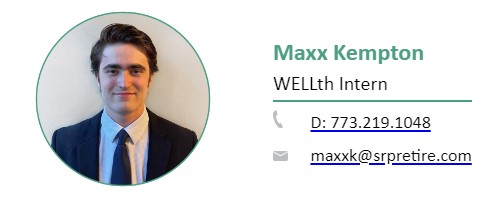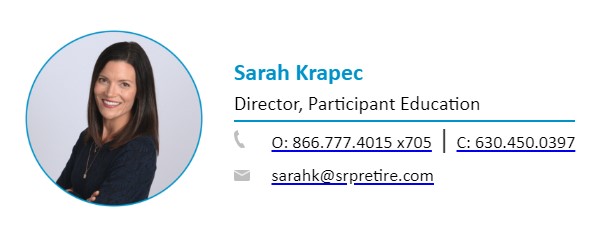After the graduation bells ring and the academic caps are tossed, most graduates take on the next chapter that consists of a new job and more independence. There is no better time to become more aware of personal finances and financial stability during this drastic lifestyle change. Since I, myself, will be graduating this May, I’ve scoured the internet, had long chats with my mentors, and tested out methods to understand how to truly become financially independent. Consider my takeaways and the key habits I learned to take on the path of financial independence.
Creating a Budget
Starting a new job with a new income can be both intimidating and exciting. The options on what to do with a new stream of income are endless. The most important step when facing income changes is to become fully aware of your new financial situation. The best way to do this is to create a budget.
What is a budget?
A budget is a financial tool used to determine your financial availability and to plan how and where you spend your money. Ultimately, a budget is a plan on where to allocate your income and limit spending when necessary to become financially stable.
Why use a budget?
Creating a budget is one of the main fundamentals of gaining a perspective on your financial positioning. They can be used to find good and bad financial habits and allow you to address them accordingly. A budget will also assist in creating financial goals and objectives for the future.
How to create a budget?
Create a budget by calculating your net-income and determining how much money you’d like to dedicate to monthly expenses (rent, food, subscriptions, entertainment, etc). The amount spent on monthly expenses should be congruent with net-income and the amount set aside for savings. An easy way to visualize your budget is to use an excel document to track each month's expenses to obtain a total monthly expense. Many variations of budgeting templates can also be found online. Be sure to regularly update your budget as you acquire more income or additional expenses.
Financial Action #1: Create a budget using estimated monthly expenses and occasionally update it to reflect more accurate estimates.
Savings
Financial experts typically recommend that 20% of your earned paycheck after taxes are deducted be allocated towards your savings. That 20% can then be split between a normal savings and retirement account. Once habits are in place to save 20% of your earned paycheck, you then have the ability and confidence to manage spending the leftover 80%. Establishing savings will ultimately give the feeling of financial freedom.
Emergency Savings Account
A savings account is a place to deposit money that acts as a safety net, particularly in emergency situations. A savings account should be built to cover three to six months of living expenses and can be relied on in urgent situations when money is needed, like an unpredicted broken-down car, a medical expense, or even a lost job. Once the savings account builds over the goal amount, one has the ability to “borrow” the overflowed money for other big purchases, like vacations, buying furniture, etc. The beauty of the emergency savings account is that it doesn't make you a slave to your income. If you lose your job, you have the confidence and stability to find the right job, not just the next job. It is key to avoid the dreaded paycheck-to-paycheck living.
Financial Action #2: Continue to deposit a portion of your paycheck into the emergency savings account. When you have enough to cover 6 months of expenses you can decrease the percentage of your income that is contributed to this account, and you can allocate those funds to either a Health Savings Account (HSA) or a brokerage account.
Roth 401(k)/Health Savings Account
In addition to an emergency savings account, the second priority is to contribute to 401(k) and/or HSA. Many employers offer company matches on 401(k) contributions. This is a great benefit to take advantage of. For whatever percentage amount the company is willing to match, you should also contribute the same amount to your 401(k) in order to maximize your contributions. This will account for the remaining portion of the 20% of savings. Once the savings account has reached the point where you are able to afford three to six months of living expenses you will then be able to reduce the percentage going into the savings account and start contributing to an HSA. The HSA can be used for any medical expenses, however, may also be used as a retirement savings account.
Financial Action #3: Always take advantage of your employers matching contribution from the first day eligible.
Financial Action #4: Additional savings after 401k and emergency savings account can be directed to a Health Savings Account, if eligible.
Savings Example:
20% Savings
à 14% into Emergency Savings Account
- Once 6 months of living expenses are obtained, option to decrease the 14% to 8% and allocate that extra 6% to an HSA.
- While growing from the 8%, option to use the overflow to make large purchases (buying furniture, vacations, etc).
à 6% into Roth 401(k)
Brokerage Account
Another option for the overflow of the emergency savings account is to transfer the money to a brokerage account. This can be done when there are no big purchases that need to be made. A Brokerage account is a place to hold your money on behalf of an investor with a bank, broker or custodian. You can manually transfer from the savings account to open a money market account where you will be able to start making investments into mutual funds and stocks. These accounts can generate a new stream of income as opposed to just sitting in your savings account accumulating a small amount of interest.
Spending
An incoming stream of money not only comes with the responsibility of saving, but it also comes with the responsibility of spending. When spending money, it is important to consider what you need versus what you want. There are many expenses that are essential. This includes rent, car payments, food, and anything else that is absolutely necessary for you to live. Once accounting for the needs, you may then use the remaining amount of the budget for wants without exceeding the 80% of income allocated towards spending.
Credit Cards
There are a few different ways to spend money, like using cash, a debit card, a credit card, etc. Spending money using a credit card is more favorable for a few reasons. They can help you build credit, earn specific rewards, and even help protect you against fraud. When applying for a new credit card, it is important to look for the type of rewards they offer and to match it with your certain lifestyle. Many cards can either offer a particular percentage of cash back for every purchase, points for purchasing items, or miles that can be used for traveling.
Financial Action #5: Pay off your credit card in full, each month.
Monthly Payments
Prioritizing and planning around important payments is key in responsible spending. These payments might include debts and the essential monthly payments you budgeted for. Many times, you will have the option to auto-debit your bank account which will allow companies to automatically charge your account. This will make it so you will not have to make payments manually every month and will help avoid any possible late fees.
When making decisions around large or recurring purchases, it's wise to understand their value. For example, if one doesn't value having the nicest car, they should opt for a lower car payment, especially since they depreciate in value. Another thing to be conscientious about is anchoring. Anchoring is a financial concept in which you first establish monthly payments whether it be rent, car payments, subscriptions ect. This is important to think about while searching for places to live and cars as you will be locked in to paying these amounts for a long duration. Cars, in particular, are typically a big mistaken investment for college graduates. Buying a nicer car than needed could lead to you being locked in for higher monthly payments.
Financial Action #6: Set up regular, monthly expenses (rent, utilities, car payments, student loans) to be automatically debited from your checking account.
Housing Market
Further down the road, it may be in your interest to purchase your first home. In order to do this, it is smart to already have built up your brokerage account to have the money for a downpayment. A great goal to have is to put 20% of the houses' value down and take out a mortgage for the remaining 80%. Typically, it is said that purchasing a house is a good investment as the value of the house should increase over time.
Road to Financial Freedom
As college graduates take on the world of work, their knowledge around finance, as well their plans and habits can shape their relationship with money. Receiving an income comes with a great deal of decision making. Intentional saving and spending with the help of a budget can lead to a life that doesn't need to worry about finances. This will lead to a more pleasant lifestyle and a comfortable retirement.
Call to Action
Whether you are a recent college grad or looking to begin a more intentional savings and investment journey, the WELLth team can help! Schedule a consultation with our team and please share this note with your favorite grad (or someone else you’d like to help)!
About the Author
My name is Maxx Kempton, and I’m a recent college graduate from Xavier University in Cincinnati, Ohio. I have graduated with a major in Finance and am pleased to have been given the opportunity to work here at Strategic Retirement Partners as their WELLth intern. Throughout my internship I have been learning a lot about personal finance and the importance of financial independence. I’m happy to be able to share what I have learned to others that are in my position so that they too can be prepared for the next steps in their lives.
Co-Author

